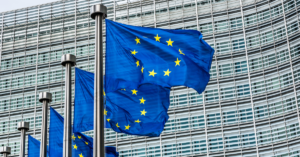What To Know About the European Union’s Corporate Sustainability Due Diligence Directive (CS3D)
Human rights and corporate sustainability due diligence are topics that have continued to gain traction and visibility over the past few years. Most recently, the European Union’s Corporate Sustainability Due Diligence Directive (CS3D) was approved in June 2023, marking the first international due diligence imperative applicable to all major enterprises based in or generating significant turnover within the EU.
As a business, it is crucial to understand the new requirements introduced by CS3D and implement the necessary steps to prepare for compliance. What is the impact of CS3D for companies and their suppliers? How can companies take steps to meet the expectations of the directive, and what are the penalties for non-compliance? This article will seek to break down the details of CS3D and highlight the importance of this new directive for businesses and workers worldwide.
According to the European Parliament, the creation of the CS3D is part of the European Union’s transition towards a climate-neutral and worker-oriented economy, in line with the environmental and human rights objectives of the EU Green Deal and United Nations Sustainable Development Goals. While various other policies are being implemented within the EU to address these goals, the CS3D was created while cognisant that most of the adverse impacts of EU consumption and business practices are outside of the Union in the global supply chain. By codifying international standards for due diligence that companies previously undertook on a voluntary basis, the CS3D aims to provide legal certainty for enterprises and ensure remediation for victims of harm across the board. The new baseline of compliance requirements will level the playing field for all Member States of the Union, avoiding fragmentation while simultaneously advancing respect for human rights and environmental sustainability across sectors.
The process began with a proposal by the European Commission in February 2022. In November 2022, the European Council established its negotiating position and approach for the CS3D. Subsequently, the Committee on Legal Affairs voted on their amendments to define the European Parliament’s position in April 2023, which was adopted by the European Parliament in June 2023. Interinstitutional negotiations on the CS3D can begin among the European Parliament, the European Council, and the European Commission. The formal adoption of the CS3D is not anticipated before 2024. Once it is formally adopted, Member States will have two years to incorporate the CS3D into their national legislation.
The CS3D applies to several main groups of large enterprises. Group 1 enterprises include companies based in the EU with 500 or more employees, while Group 2 enterprises include companies based in the EU with 250 or more employees. These companies must generate at least EUR 150 million net turnover worldwide in both cases. The CS3D also includes third-country companies, generating EUR 150+ million and EUR 40+ million net turnover respectively, within the union. The directive also covers companies operating within and/or generating significant turnover in defined high-impact sectors, such as agriculture or mineral extraction.

The directive outlines expectations for companies to conduct risk assessment within their value chain and accordingly develop due diligence processes, subject to annual review and update. Similar to other legislation of this kind, public communication and reporting on due diligence efforts is mandatory. One main area of focus for the directive is the integration of due diligence processes into management systems. Issues should be addressed where they arise, and companies must proactively adopt policies that aim to prevent or mitigate adverse human rights, environmental, and/or governance impacts.
Additionally, companies must establish operational grievance mechanisms for workers and stakeholders in their supply chain to report concerns and submit complaints. A key mechanism for engaging workers’ voices, grievance mechanisms are an effective tool that provides insight into the impact of policies on actual working conditions, acting as a litmus test for companies. Grievance mechanisms are also vital in providing access to appropriate remedies for affected workers and stakeholders, which companies must cooperate with in line with the directive. Effective grievance mechanisms should be confidential, impartial, and accessible to workers, especially high-risk and vulnerable groups.
Enforcement will be conducted on the Member State level, with potential administrative and civil penalties. Administratively, each Member State of the EU is compelled to set up a regulatory authority to impose monetary fines and compliance orders. Members of the public are encouraged to submit complaints of alleged violations to these regulatory bodies. Furthermore, Member States will ensure that victims will receive compensation for harm incurred by a company’s failure to comply with their due diligence obligations, making companies liable to civil suits in the event of non-compliance.
While the impact of CS3D is readily apparent for companies, it is important to note the effects on suppliers and workers worldwide. Due to the global nature of supply chains, the sweeping nature of an EU-wide due diligence directive will affect suppliers worldwide as their client companies likely fall under the jurisdiction of CS3D. The company is expected to undertake the majority of the burden of the new requirements, as the directive includes measures limiting the burden’s passing onto smaller suppliers in the value chain. However, as CS3D marks another milestone in the increasing rigour of due diligence imperatives, suppliers are also expected to take proactive steps to bring their operations up to international standards. Suppliers violating human rights and environmental guidelines may find their business relationships at risk as companies come under increasing pressure to address adverse impacts in their value chain.
In conclusion, the EU’s Corporate Sustainability Due Diligence Directive is an important step towards holding companies increasingly accountable for the human rights and environmental impacts of their business practices and sets new standards for due diligence obligations. As the directive comes into force, it is imperative for companies and suppliers alike to understand the new expectations and take the necessary steps to ensure compliance.
Author: Alice Bai

